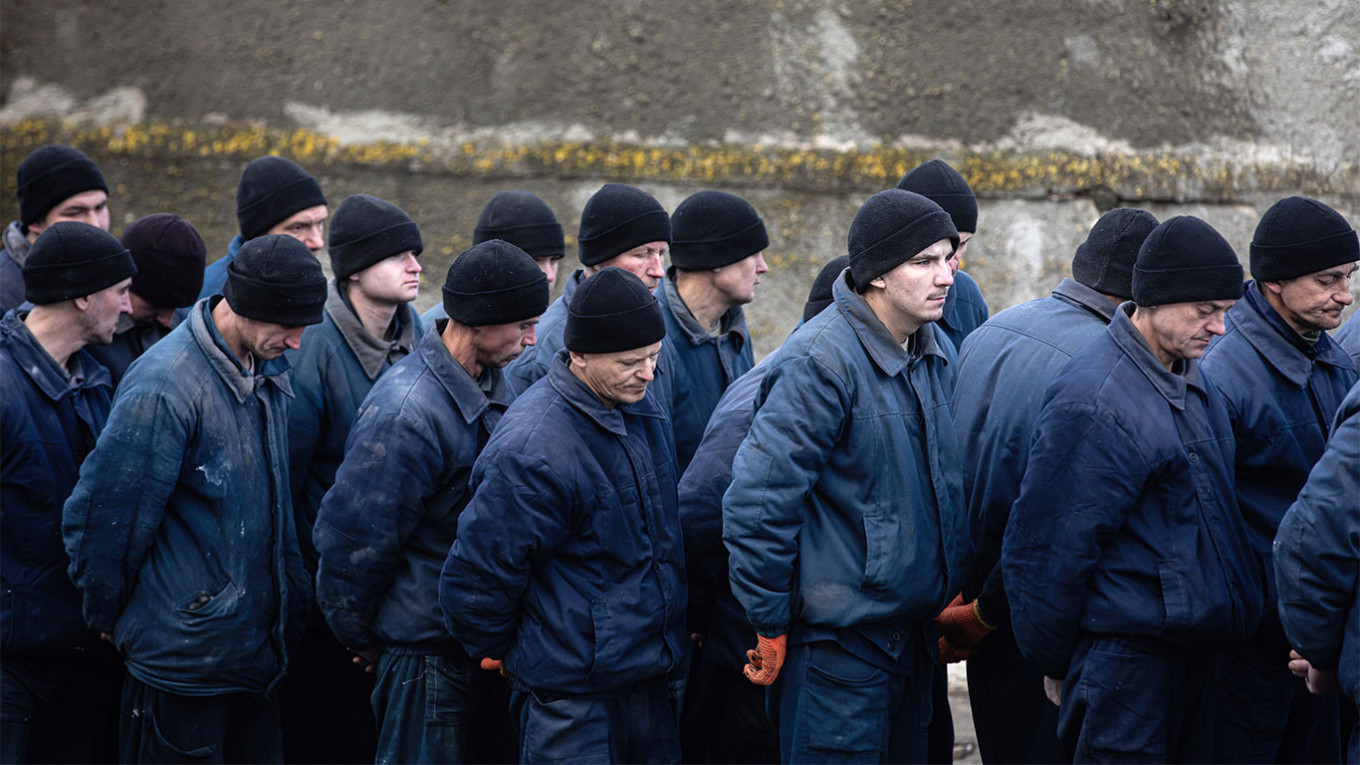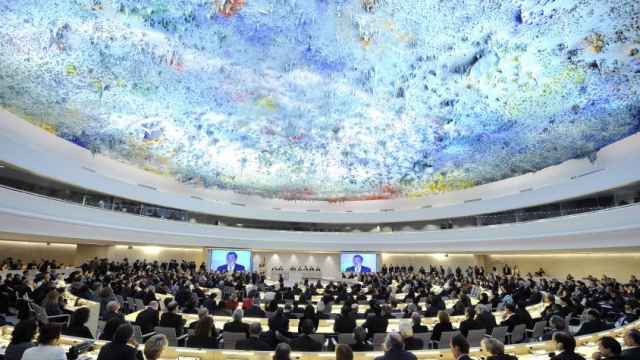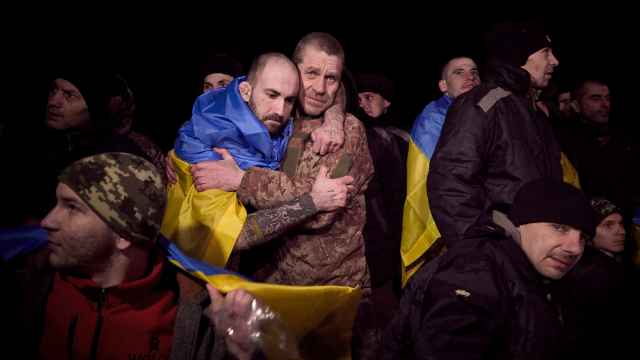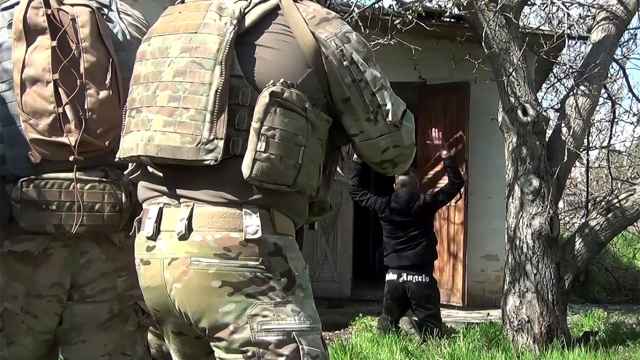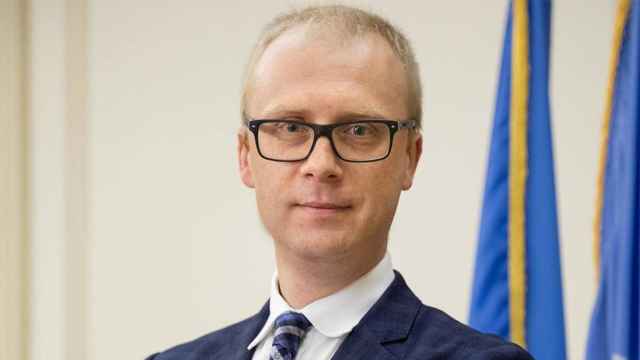Elvira only found out that her son, a soldier serving in Russia’s Armed Forces, had been taken prisoner when she received a phone call from a Ukrainian security officer.
“I was really shocked when Ukraine’s Security Service called me to say that my son was in captivity,” Elvira told The Moscow Times, recalling the moment a few weeks after the Russian invasion of Ukraine on Feb. 24, 2022.
Despite dozens of prisoner exchanges between Russia and Ukraine over the following year, her son remains held in a Ukrainian prison — with no sign of imminent release.
“I pray to God every day to help me bring him home,” said Elvira, who repeatedly broke into tears during a phone interview.
“All I want is for my heart not to stop beating so I can get him out.”
Her son is one of the thousands of Russian soldiers to have been taken prisoner by Ukraine in over 13 months of fighting, with the families of many of the imprisoned men alleging the Russian authorities are not doing enough to bring them home.
In some cases, relatives have said they located captured soldiers on their own — or with the help of Ukrainian YouTube channels and social media groups — and then had to pressure the Defense Ministry to formally register their loved ones as prisoners of war, a designation that makes them eligible to be included in a prisoner exchange.
However, the Kremlin’s criteria for requesting prisoners be included in a swap is unclear, and the painstaking negotiations over such exchanges — which often take months — are routinely accompanied by mutual accusations of dishonesty.
Alina Maksimovskaya, the girlfriend of a Russian PoW, told The Moscow Times that she discovered her boyfriend Andrei Zavyalov had been taken prisoner in Ukraine when she saw interviews he gave to Ukrainian TV channels from captivity.
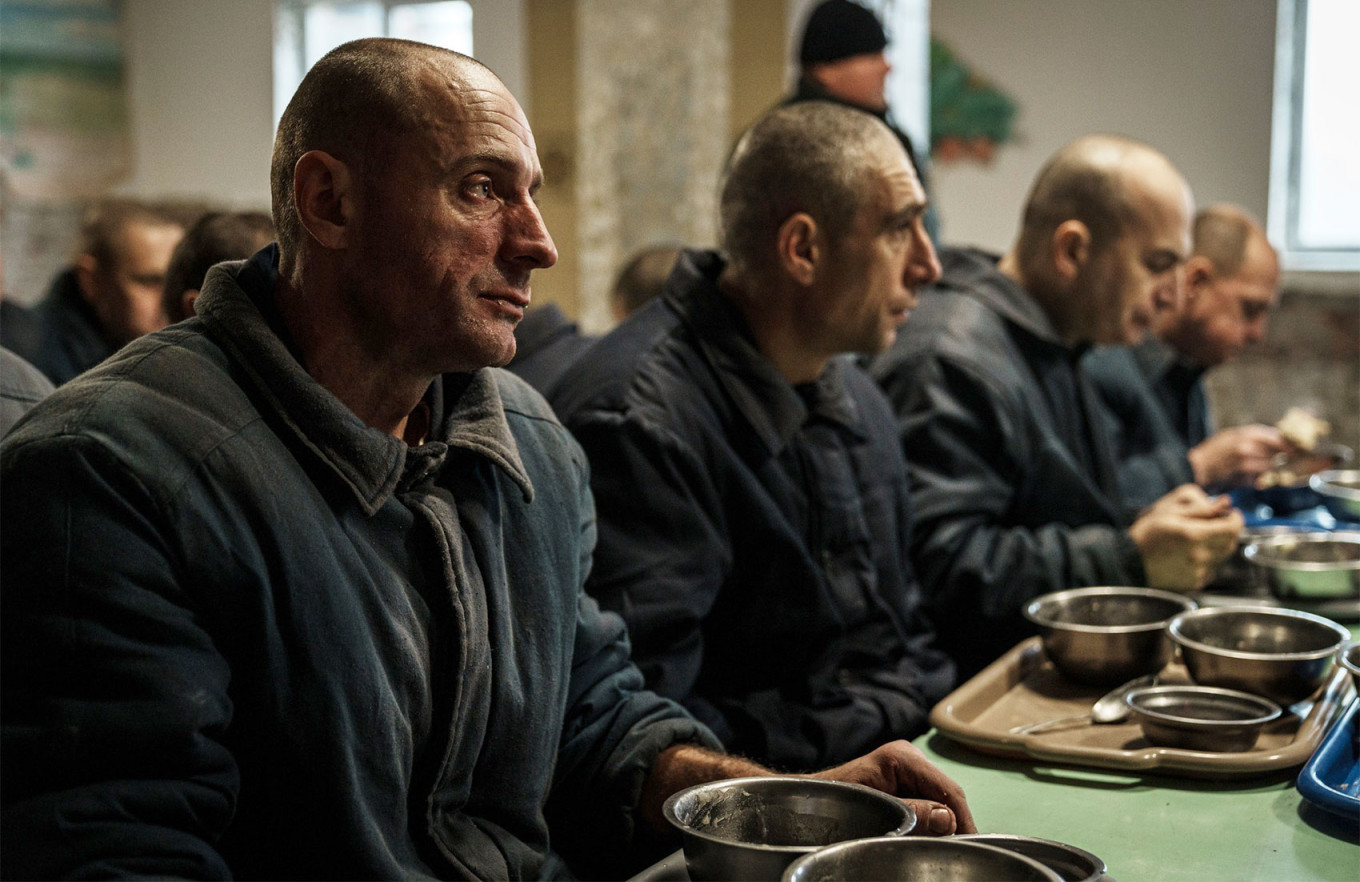
After that, she appealed to the military authorities to add him to the official PoW list.
“I knew that every moment counted,” said Maksimovskaya. “We didn’t know if he was still alive or not and what had happened to him.”
She said she found it difficult to reach representatives of the Russian Defense Ministry or the Red Cross. “It was hard to get anyone on the hotlines,” she said.
Zavyalov was eventually released in a prisoner swap in late October.
Other relatives of Russian prisoners of war have made similar complaints about the Russian authorities — and the difficulties of drawing attention to the plight of their loved ones.
“Until I personally appealed to the president of the Russian Federation… my son was not added [to the official list of prisoners of war],” Irina Chistyakova, the mother of a Russian prisoner of war, said in a video online in December.
Her son, Kirill, was conscripted shortly before the invasion and, according to Chistyakova, went missing last March in Ukraine’s Kharkiv region.
As part of her hunt to find out what had happened, she looked through numerous photos of dead soldiers and visited a military morgue in the southern Russian city of Rostov-on-Don.
Eventually, she spoke to a freed Russian PoW who told her that Kirill was a prisoner in Ukraine. Kirill remains in captivity in Ukraine.
Just as Russia does not publish statistics on its military casualties in Ukraine, there is no official data on the number of Russian soldiers who have been taken prisoner.
The Ukrainian Coordination Headquarters for PoWs claimed earlier this month that almost 10,000 Russian soldiers had attempted to surrender via a special hotline.
While the International Committee of the Red Cross (ICRC) told The Moscow Times that it doesn't disclose information on prisoner numbers, ICRC Ukraine spokesman Alexander Vlasenko said in December that there were “thousands” of PoWs held in both countries.
Since the start of the war, Moscow and Kyiv have organized at least 38 prisoner exchanges, according to Ukraine, in which over 2,700 prisoners were exchanged.
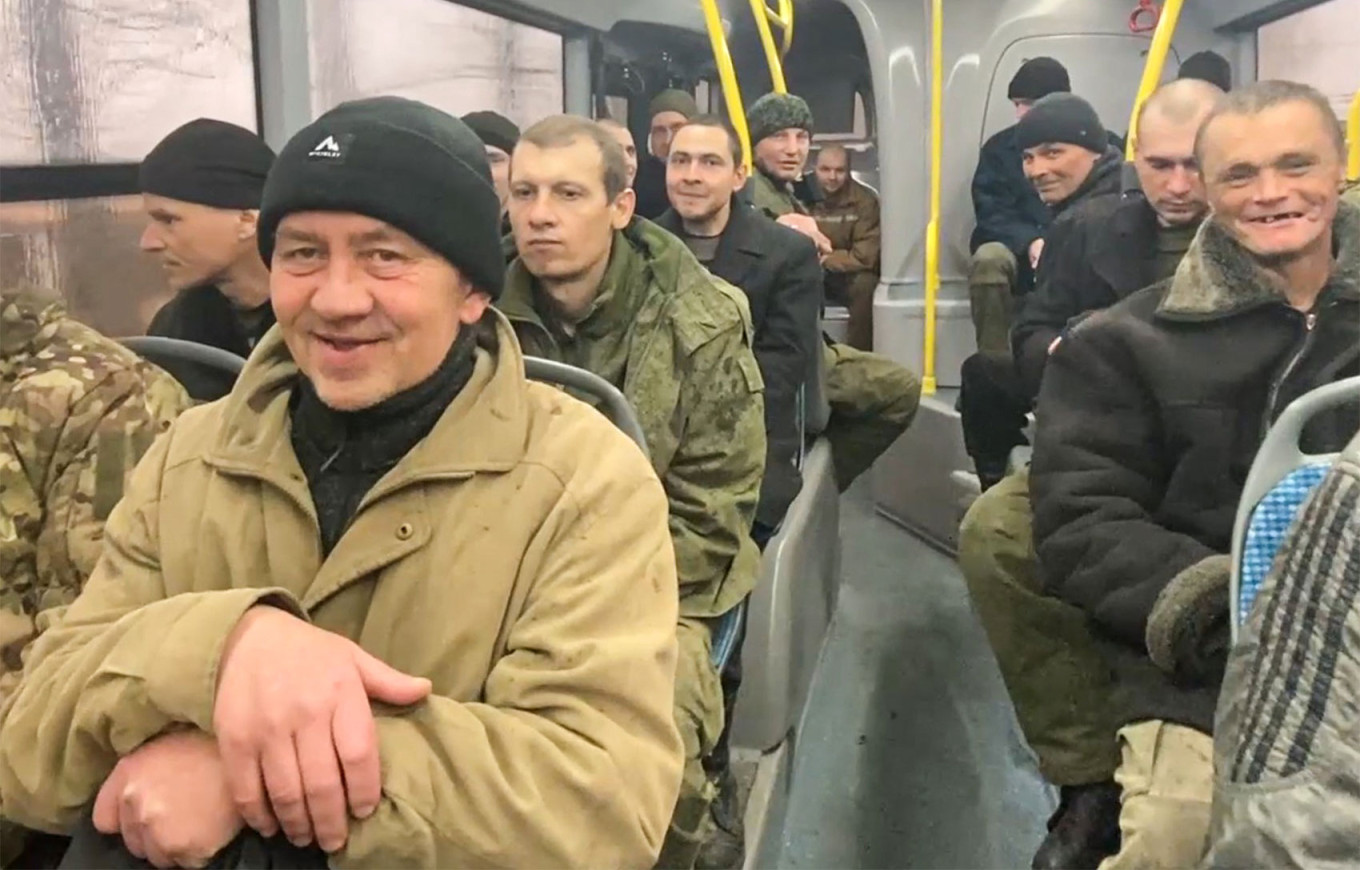
Little is known about the secretive negotiations between Russia and Ukraine that precede prisoner swaps — although Russia’s negotiations are carried out by the Defense Ministry with the assistance of presidential human rights commissioner Tatiana Moskalkova.
The mother of one Russian prisoner of war, who requested anonymity to speak freely, told The Moscow Times that her son was swapped after less than six weeks in captivity.
Others, like Elvira's son and Kirill Chistyakov, have been waiting more than a year.
According to Ukrainian officials, Russia’s representatives regularly request soldiers with in-demand military skills to be included in swaps.
But there is also evidence of political interference.
In one particularly controversial prisoner exchange — heavily criticized by some pro-war commentators — the Kremlin freed 215 PoWs, including captured foreigners and senior Ukrainian commanders from the Azov Regiment, in September in exchange for at least 55 Russian PoWs and Viktor Medvedechuk, a close friend and ally of President Vladimir Putin.
And Yevgeny Nuzhin, a prison inmate recruited to fight for mercenary company Wagner, was apparently released by Ukraine in a swap late last year. Shortly after, he was executed by Wagner in what many believed to be a punishment killing for a pro-Ukraine interview he gave whilst in captivity.
Neither Russia’s human rights commissioner nor the Defense Ministry responded to requests for comment from The Moscow Times.
Much of the concern expressed by relatives of Russian PoWs is focused on whether their loved ones are suffering violence or mistreatment in Ukrainian hands.
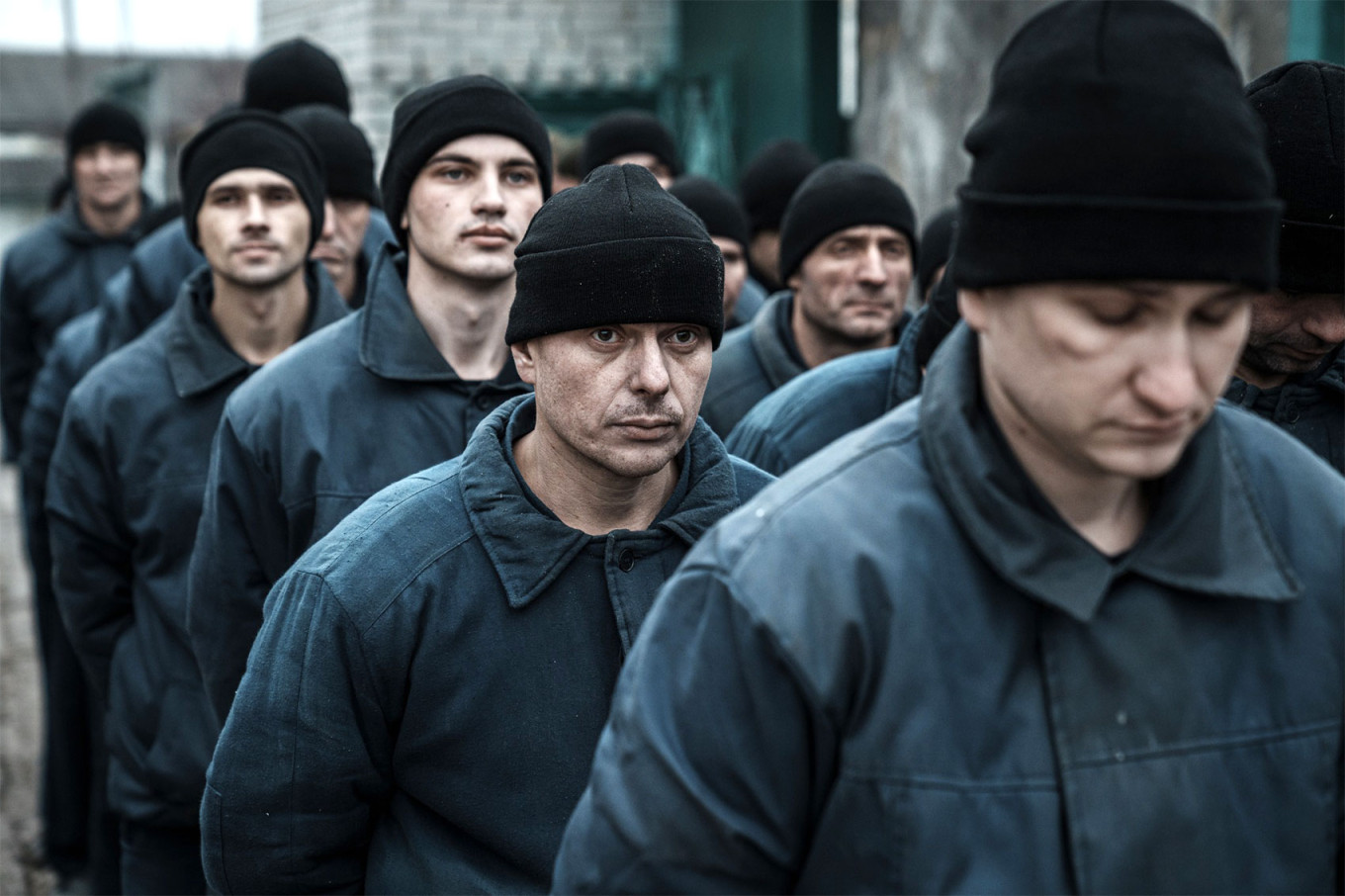
The United Nations’ human rights mission in Ukraine, which interviewed 175 Russian PoWs for a November report, has said that the prisoners told them of “summary executions and several cases of torture and ill-treatment mostly when they were captured, first interrogated, or moved to transit camps and places of internment.”
However, some former Russian PoWs have recounted being treated well by their captors.
Freed Russian PoW Mikhail Radygin said in a December interview with local television that conditions in captivity were “normal” but that some prisoners had been beaten.
“They follow the Geneva Convention there,” Radygin said in the video, which was later deleted after it attracted widespread online attention.
According to Maksimovskaya, her boyfriend Zavyalov wasn’t mistreated in captivity, but she said “others [released PoWs] told some stories about violence.”
As the two sides remain bogged down in static warfare in the east of the country, many expect there to be fewer instances of surrender in coming months.
The Kremlin has also taken legal steps to deter soldiers from giving themselves up — last year Russia introduced jail terms of up to 10 years for "voluntary" surrender.
In the meantime, hundreds of Russian families continue to wait on the release of relatives held in Ukrainian jails.
Elvira said her son passes messages along to her through other Russian PoWs who are freed in prisoner swaps.
“He is asking for help,” Elvira said. “I just want my son back home.”
A Message from The Moscow Times:
Dear readers,
We are facing unprecedented challenges. Russia's Prosecutor General's Office has designated The Moscow Times as an "undesirable" organization, criminalizing our work and putting our staff at risk of prosecution. This follows our earlier unjust labeling as a "foreign agent."
These actions are direct attempts to silence independent journalism in Russia. The authorities claim our work "discredits the decisions of the Russian leadership." We see things differently: we strive to provide accurate, unbiased reporting on Russia.
We, the journalists of The Moscow Times, refuse to be silenced. But to continue our work, we need your help.
Your support, no matter how small, makes a world of difference. If you can, please support us monthly starting from just $2. It's quick to set up, and every contribution makes a significant impact.
By supporting The Moscow Times, you're defending open, independent journalism in the face of repression. Thank you for standing with us.
Remind me later.



